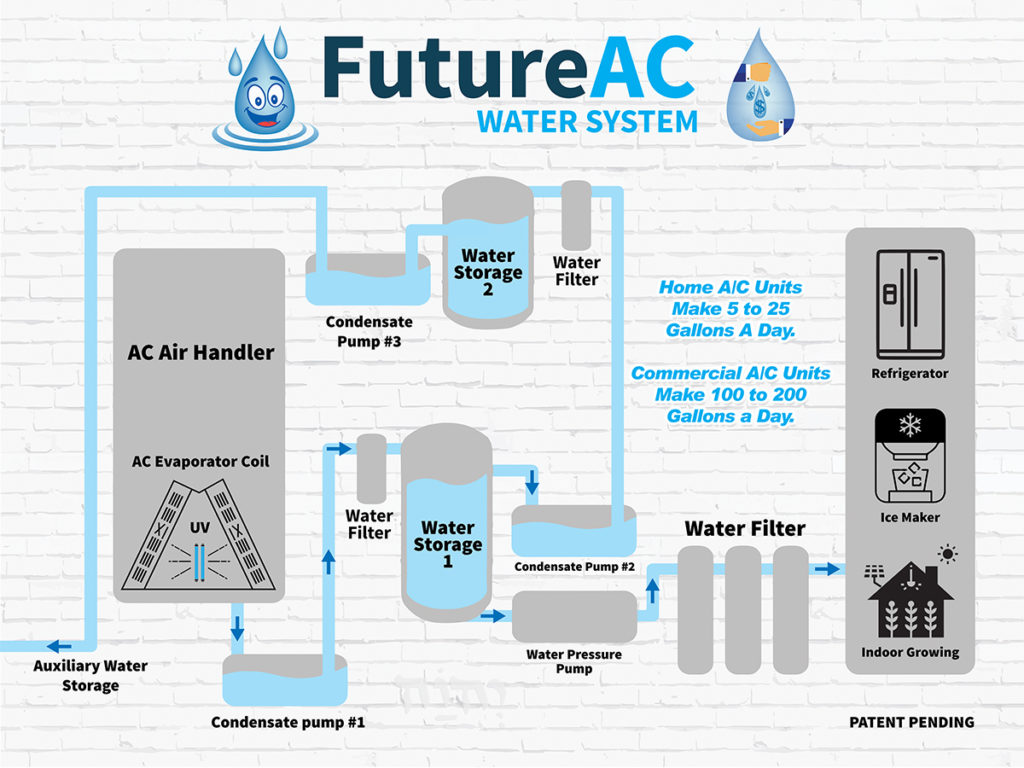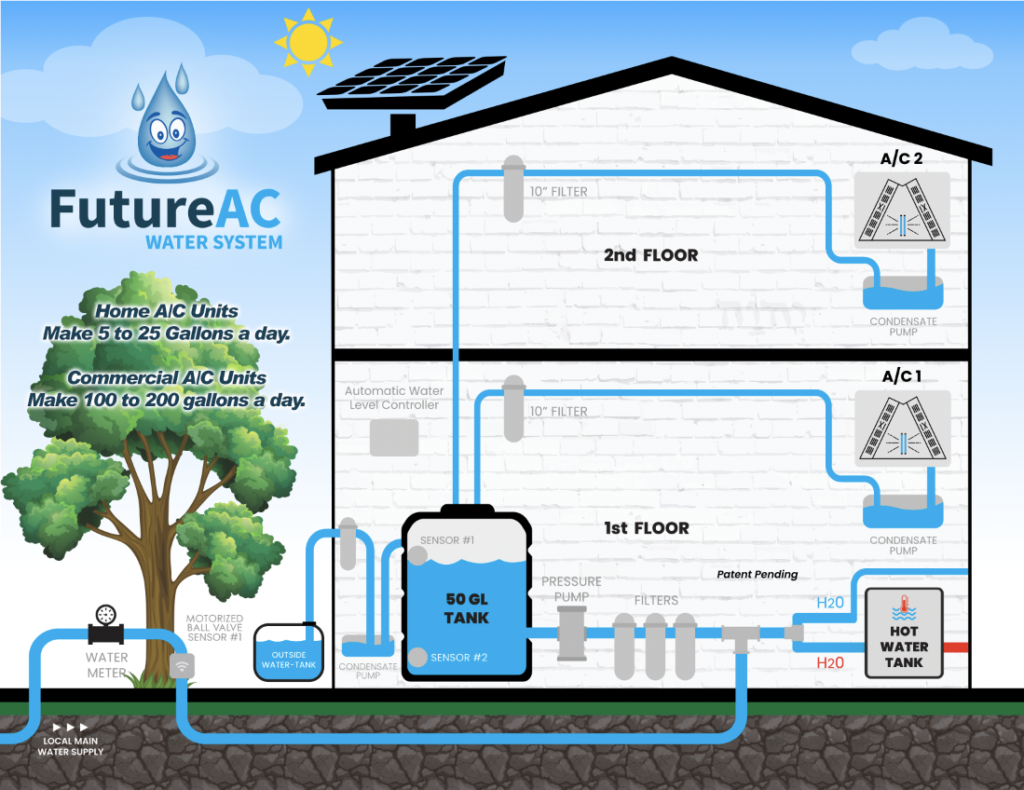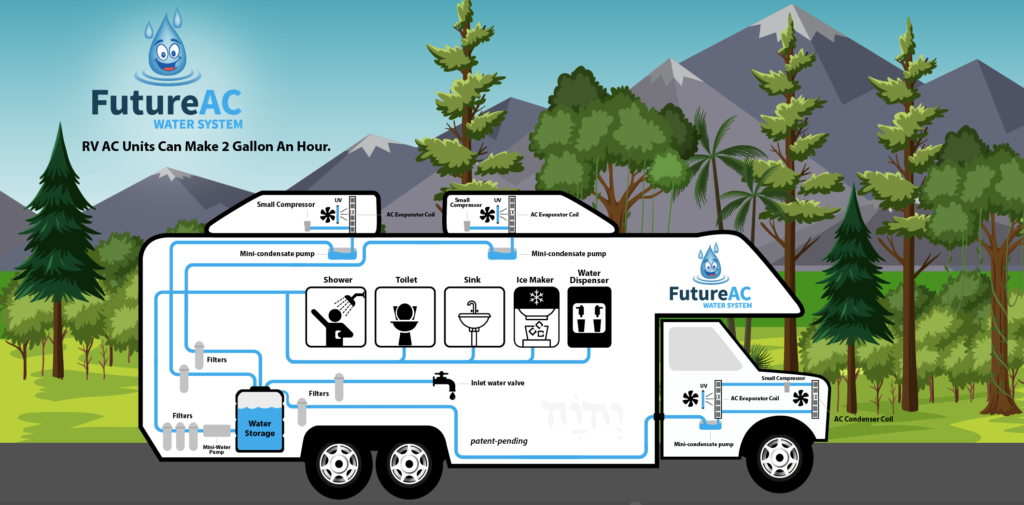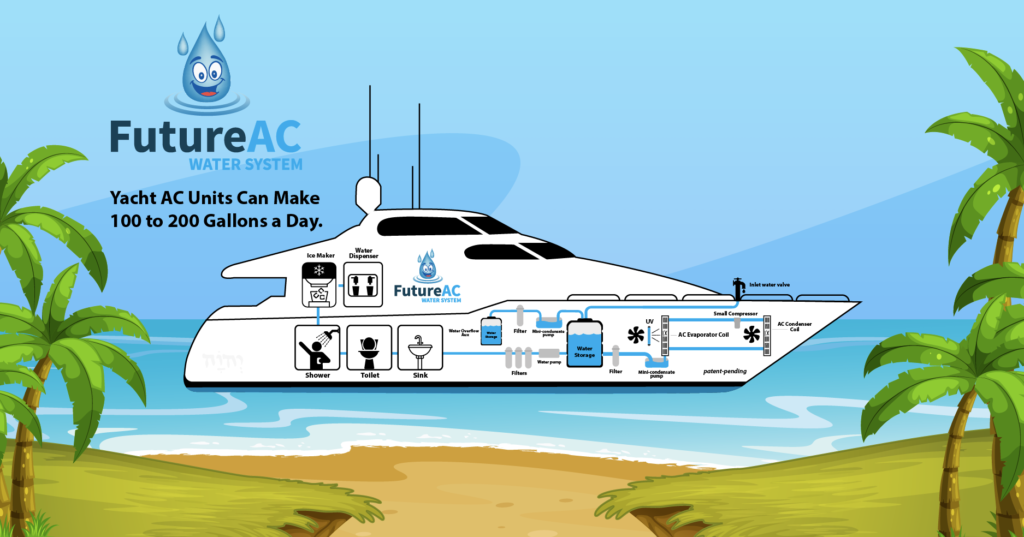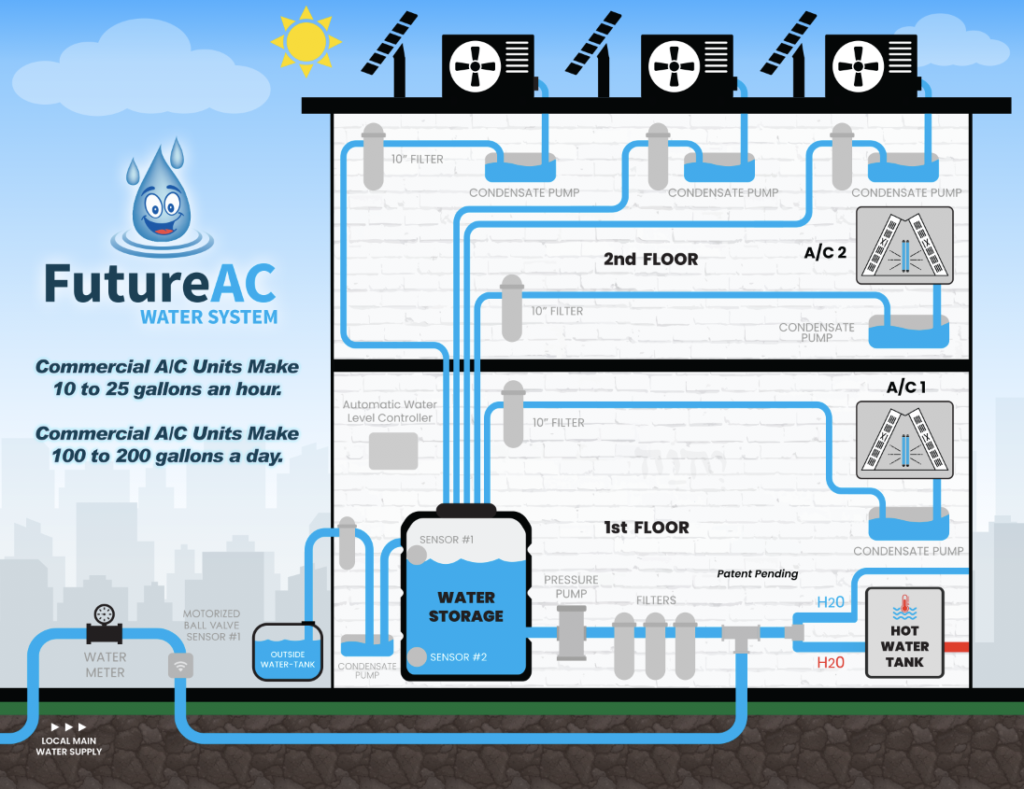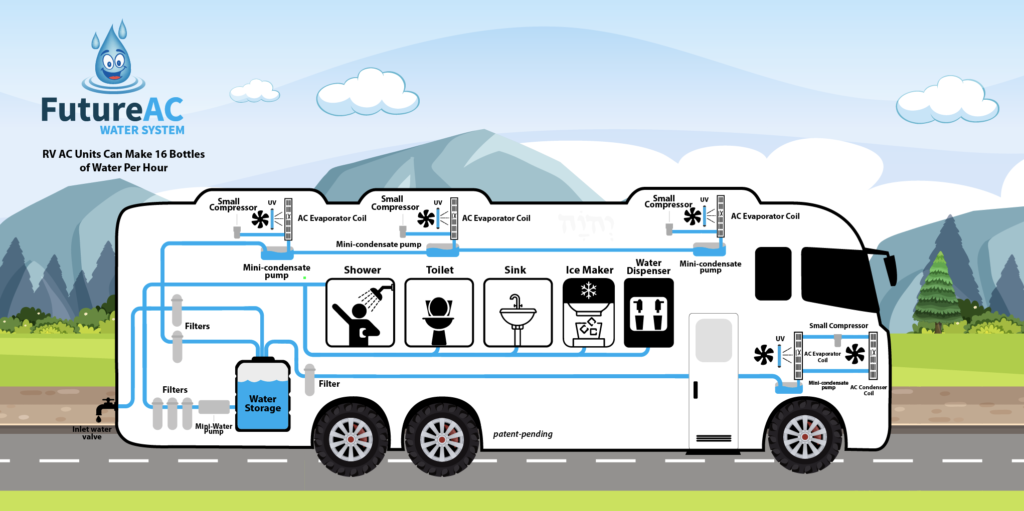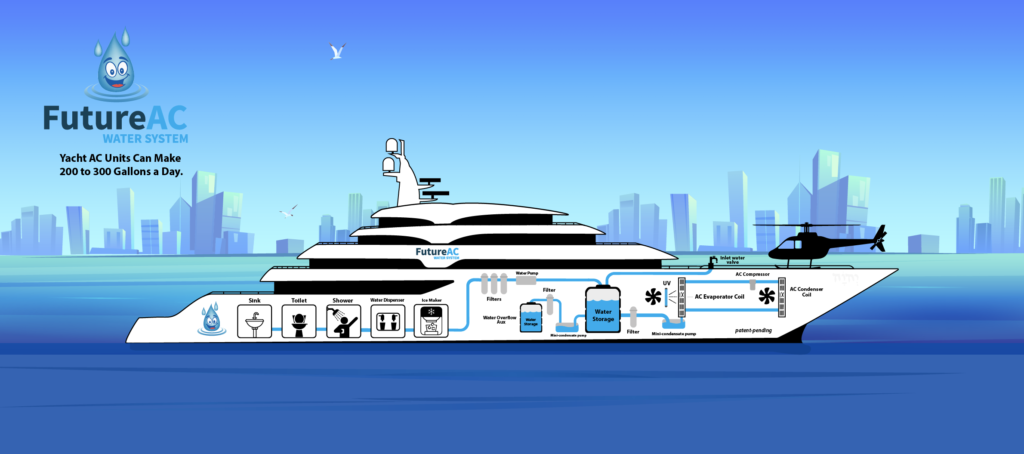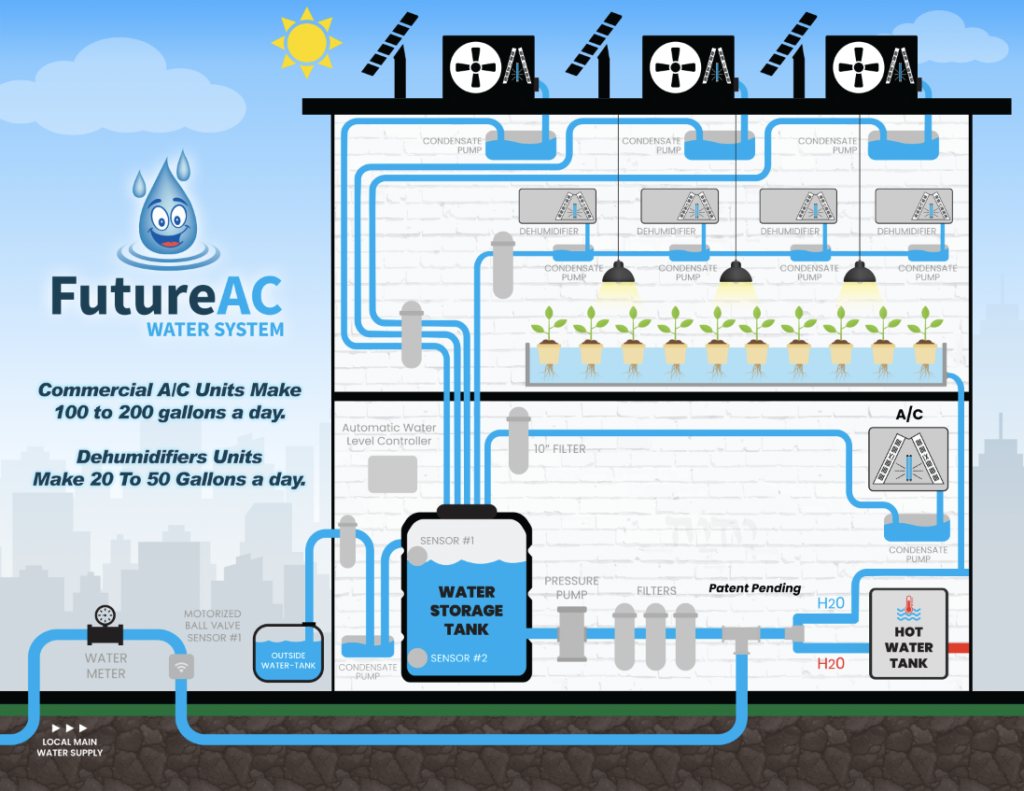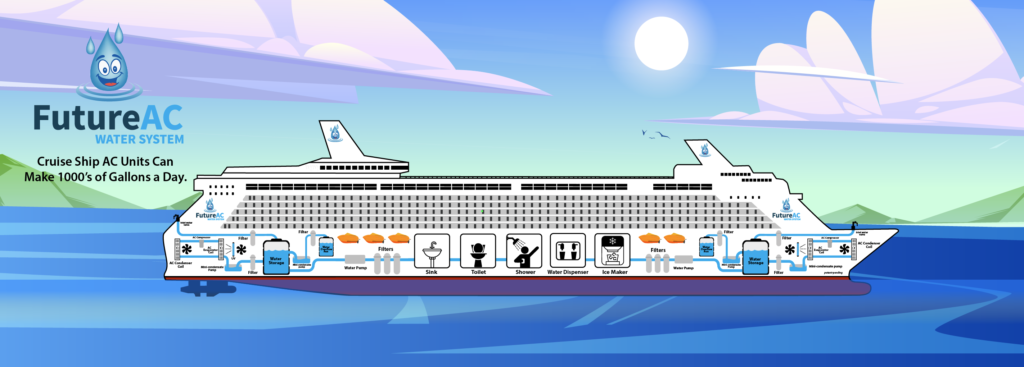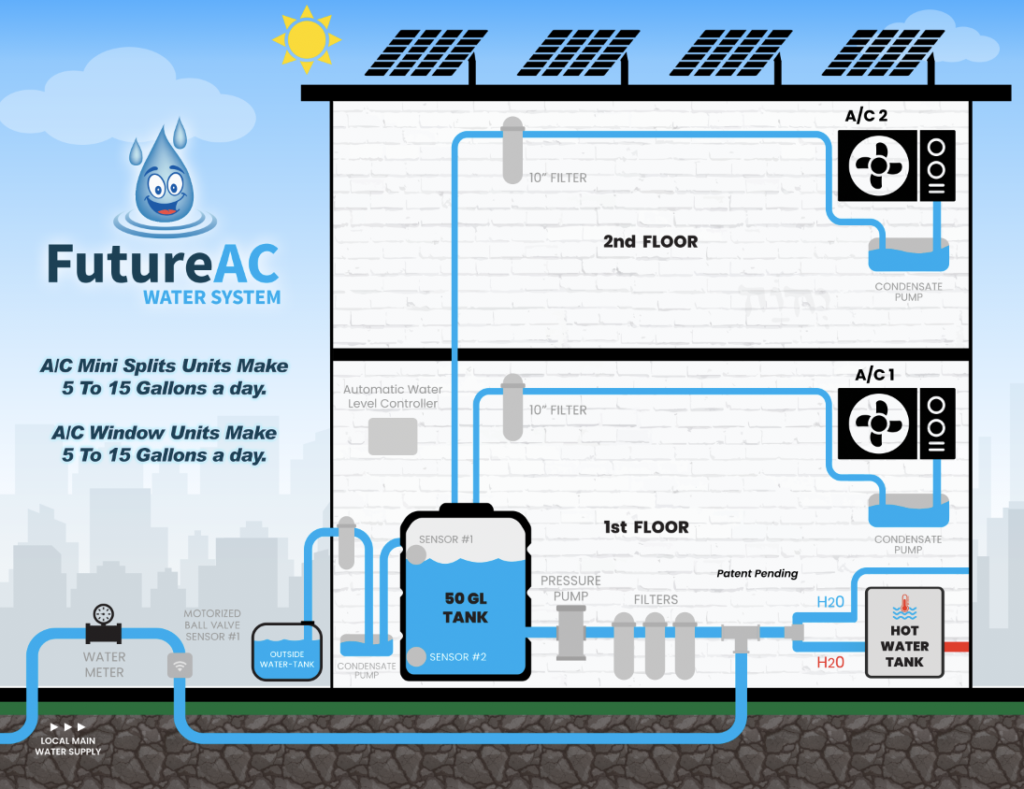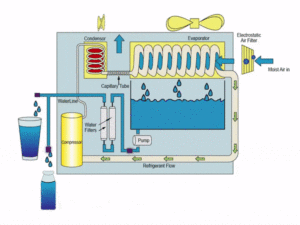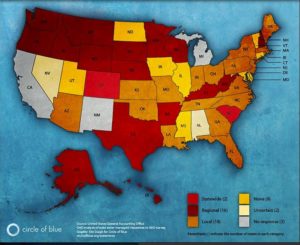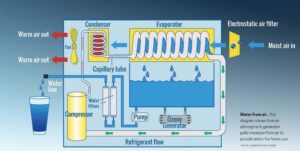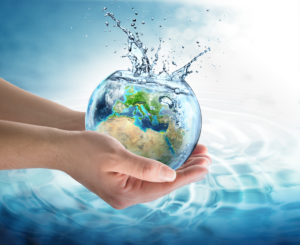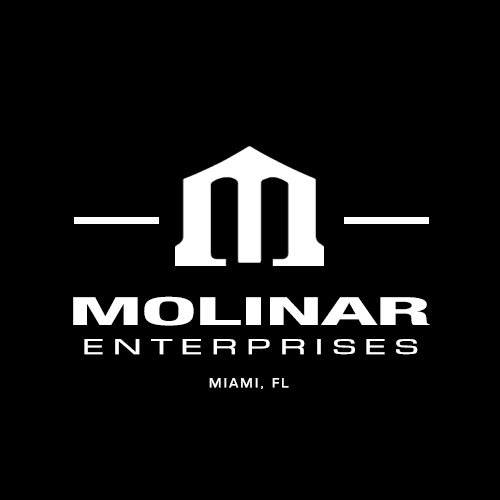The Benefits of Keeping your Pets Pet Hydration in South Florida with Clean and Safe Recycled AC Water
South Florida is known for its hot and humid weather, which can make it challenging for pets to stay hydrated. Pets, like humans, can suffer from dehydration if they do not consume enough water. This can lead to a range of health issues, including lethargy, dry mouth, and even heat stroke.
The problem of keeping pets hydrated in South Florida is especially pronounced during the summer months when temperatures can reach well above 90 degrees Fahrenheit. High humidity levels can also make it more difficult for pets to regulate their body temperature, putting them at risk of overheating.
Pet owners may find it challenging to keep their pets hydrated during these hot and humid conditions, especially if they are not always home to refill their pets’ water bowls. Additionally, some pets may be picky about the water they drink and may not want to drink water that has been sitting out for an extended period of time.
In extreme cases, pet owners may resort to leaving their air conditioning on all day to ensure their pets have access to cool water. However, this can be both expensive and environmentally unsustainable, as it requires a significant amount of energy to maintain a cool indoor temperature.
Overall, the problem of keeping pets hydrated in the heat of South Florida is a significant one that requires innovative and sustainable solutions. AC water recycling can be an effective solution to this problem, as it allows pet owners to provide their pets with access to clean, safe, and cool water without having to rely on energy-intensive air conditioning.
How AC water recycling works and why it produces clean, safe water for pets
AC water recycling is a sustainable solution that can help pet owners in South Florida to keep their pets hydrated during hot and humid conditions. AC water recycling involves capturing and treating condensate water produced by air conditioning systems, which is then recycled and used for non-potable purposes such as irrigation or flushing toilets.
One of the major benefits of AC water recycling is that it produces clean and safe water that is free from harmful chemicals and contaminants. This is because condensate water is produced through the process of condensation, which involves the conversion of water vapor into liquid form. As a result, condensate water is free from minerals, salts, and other impurities commonly found in ground or surface water sources.
In addition to producing clean water, AC water recycling can also help to reduce the overall demand for freshwater resources. By using recycled water for non-potable purposes such as pet hydration, pet owners can reduce their reliance on municipal water sources and help to conserve these valuable resources.
Furthermore, AC water recycling can be a cost-effective solution for pet owners in South Florida. By capturing and recycling condensate water, pet owners can reduce their monthly water bills and save money on energy costs associated with air conditioning.
AC water recycling offers a sustainable and cost-effective solution to the problem of keeping pets hydrated in the heat of South Florida. By providing pets with access to clean and safe recycled water, pet owners can ensure their pets stay healthy and hydrated while also reducing their environmental impact and saving money on their monthly utility bills.
Using clean AC recycled water for pet hydration offers numerous benefits for both pet owners and the environment. Here are some of the main benefits of using recycled AC water for pet hydration:
- Clean and Safe Water: AC water recycling produces clean, safe, and pure water that is free from impurities, chemicals, and contaminants. This ensures that pets are drinking water that is safe and healthy for them.
- Cost-Effective Solution: By using recycled AC water for pet hydration, pet owners can reduce their water bills and save money on energy costs associated with air conditioning. This makes it a cost-effective solution for pet owners who want to provide their pets with clean and safe water without breaking the bank.
- Environmental Sustainability: AC water recycling helps to reduce the overall demand for freshwater resources, which is especially important in water-stressed regions like South Florida. By using recycled water for non-potable purposes like pet hydration, pet owners can help to conserve freshwater resources and reduce their environmental impact.
- Easy and Convenient: Using recycled AC water for pet hydration is an easy and convenient solution for pet owners. The water is readily available from the air conditioning system and can be used to refill water bowls or add to pet food.
- Improved Pet Health: Hydration is critical for a pet’s health and well-being. By providing pets with clean and safe water, pet owners can help to improve their pets’ overall health, prevent dehydration, and reduce the risk of heat stroke.
- In summary, using clean AC recycled water for pet hydration offers numerous benefits for both pets and their owners. It provides a cost-effective, sustainable, and easy solution for pet hydration, while also improving pet health and reducing environmental impact.
Explanation of how AC water recycling works and why it produces clean, safe water for pets
AC water recycling involves capturing and treating condensate water that is produced by air conditioning systems. This water is then filtered and treated to remove any impurities or contaminants before being reused for non-potable purposes such as pet hydration.
The process of AC water recycling begins when warm air is drawn into the air conditioning system and passed over a cold evaporator coil. As the warm air comes into contact with the cold coil, moisture in the air condenses and forms droplets of water, which then flow into a collection tray.
The collected condensate water is then passed through a series of filters and treatment processes to remove any impurities, chemicals, or contaminants that may be present. This includes the removal of any residual air conditioning chemicals, such as refrigerants or lubricants, that may have entered the water.
After the water has been filtered and treated, it is stored in a tank and made available for reuse. The recycled water can be used for non-potable purposes such as pet hydration, irrigation, or flushing toilets.
AC water recycling produces clean and safe water for pets because the condensate water that is produced is free from minerals, salts, and other impurities that are commonly found in ground or surface water sources. This is because condensate water is produced through the process of condensation, which involves the conversion of water vapor into liquid form. As a result, the water is free from impurities and chemicals commonly found in other water sources.
Furthermore, the filtration and treatment processes used in AC water recycling ensure that any remaining impurities or contaminants are removed from the water before it is reused. This ensures that the water is clean and safe for pets to drink.
Safety considerations for using recycled AC water for pets
While using recycled AC water for pets can offer many benefits, there are also potential safety concerns that pet owners should be aware of. Here are some of the main safety concerns associated with using recycled AC water for pets:
- Contaminants: While AC water recycling removes impurities and contaminants from the water, it is still possible for some contaminants to remain. For example, if the air conditioning system is not properly maintained, it may contain mold, bacteria, or other harmful substances that can contaminate the condensate water. Future AC Water System has qualified HVAC technicians available to assist with maintaining your AC systems to ensure clean and health water for your pets.
- Chemicals: Depending on the type of air conditioning system and the chemicals used in it, there may be residual chemicals in the condensate water that can be harmful to pets if ingested in large amounts.
- Storage and Handling: Proper storage and handling of recycled AC water is critical to ensure its safety. If the water is not stored in a clean and sanitary container, or if it is not handled properly, it can become contaminated with bacteria, mold, or other harmful substances.
- Heat-Related Illnesses: In South Florida, pets are at risk of heat-related illnesses such as heat stroke, dehydration, and exhaustion. While providing pets with clean and safe water is important, it is also important to ensure that pets have access to shade and cool areas to prevent heat-related illnesses.
- To mitigate these safety concerns, pet owners should ensure that their air conditioning systems are properly maintained and that the recycled water is filtered and treated to remove any impurities or contaminants. They should also ensure that the water is stored in clean and sanitary containers and handled properly to prevent contamination.
While using recycled AC water for pet hydration can be a safe and cost-effective solution, pet owners should be aware of the potential safety concerns and take appropriate measures to ensure the safety of their pets. Proper maintenance, filtration, and storage of recycled water can help to minimize these risks and ensure that pets have access to clean and safe water.
Monitoring a pet's hydration levels and ensuring they are getting enough water throughout the day
Monitoring a pet’s hydration levels and ensuring they are getting enough water throughout the day is an important part of pet care. Here are some tips on how to monitor your pet’s hydration levels and ensure they are getting enough water:
Observe your pet’s behavior: One of the easiest ways to monitor your pet’s hydration levels is to observe their behavior. A well-hydrated pet will have moist gums and nose, and they will urinate regularly. If you notice your pet is urinating less frequently or has dry gums and nose, they may be dehydrated.
Monitor their water intake: Keep track of how much water your pet is drinking throughout the day. This can be done by measuring the amount of water you pour into their water bowl or by using a water fountain that tracks water consumption.
Offer water frequently: Offer your pet water frequently throughout the day, especially during hot weather or after exercise. This can help to prevent dehydration and ensure your pet is getting enough water.
Consider wet food: Wet food can help to provide additional hydration for your pet. If your pet eats dry food, consider adding water to the food to help increase their water intake.
Provide multiple water sources: Provide multiple water sources throughout your home to encourage your pet to drink more water. This can include water bowls in different rooms or a water fountain that circulates the water.
Monitor for signs of dehydration: Signs of dehydration in pets can include lethargy, dry gums and nose, sunken eyes, and loss of skin elasticity. If you notice any of these signs, it’s important to seek veterinary care immediately.
Monitoring your pet’s hydration levels and ensuring they are getting enough water throughout the day is an important part of pet care. By observing your pet’s behavior, monitoring their water intake, offering water frequently, considering wet food, providing multiple water sources, and monitoring for signs of dehydration, pet owners can help to ensure their pets stay hydrated and healthy. If you have any concerns about your pet’s hydration levels, it’s always best to seek veterinary advice.
As pet owners, it’s our responsibility to ensure our pets stay hydrated and healthy, especially during hot weather in South Florida. One way we can do this is by using clean, recycled AC water to provide our pets with safe and refreshing hydration.
By using recycled AC water, we not only provide our pets with clean and safe water, but we also help to reduce water waste and conserve our natural resources. Plus, it’s an easy and affordable way to ensure our pets are getting the hydration they need to stay healthy and happy.
So, if you haven’t already considered using recycled AC water to keep your pets hydrated, now is the time to do so! Whether you use a dedicated water bowl, mix recycled water with tap water, incorporate recycled water into wet food, offer frozen treats, or provide multiple water sources, there are many ways to incorporate recycled AC water into your pet’s daily hydration routine.
Let’s work together to keep our pets hydrated and healthy while also being mindful of our impact on the environment. Consider using clean, recycled AC water to keep your pets hydrated in the heat of South Florida today!
Final Thoughts
As we continue to face challenges such as water scarcity and climate change, it’s becoming increasingly important to adopt environmentally sustainable water practices. These practices not only help to conserve our natural resources but also promote the health and well-being of both pets and humans.
By using recycled AC water for our pets, we not only provide them with safe and refreshing hydration but also help to reduce water waste and conserve our natural resources. This can have a positive impact on the environment and ensure that future generations have access to clean and safe water.
Furthermore, promoting environmentally sustainable water practices can also benefit human health. By reducing water pollution and conserving natural resources, we can improve the quality of our drinking water and reduce the risk of water-related health issues.
In conclusion, environmentally sustainable water practices play a crucial role in promoting the health and well-being of both pets and humans. By adopting these practices and incorporating them into our daily lives, we can ensure that we are doing our part to protect the environment and promote a healthier future for all.

